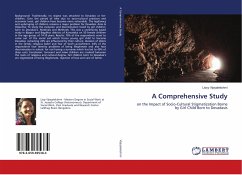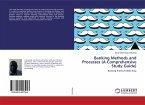Background: Traditionally, no stigma was attached to Devadasi or her children. Over the period of time due to socio-cultural practices and economic twist, girl children have become more vulnerable. The legitimacy and upbringing of children remains a major problem for Devadasi. Aims & Objective: To study the exclusion and discrimination faced by girl children born to Devadasi's. Materials and Methods: This was a community based study in Bijapur and Bagalkot districts of Karnataka on 50 female children in the age group of 14-18 years. Results: 76% of the respondents want to come out of the social evil which forces young girl child to become Devadasi, remaining 24% are influenced by their culture; decision of elders in the family; religious belief and fear of God's punishment. 44% of the respondents face identity problems of being illegitimate and also face discrimination in school, for not having a surname which has led to 40% of drop outs. Conclusion: Innocent and naïve children are crushed between the roots of religious and cultural dogma. Girl children born to Devadasi's are stigmatized of being illegitimate, rejection of love and care of father.
Bitte wählen Sie Ihr Anliegen aus.
Rechnungen
Retourenschein anfordern
Bestellstatus
Storno








